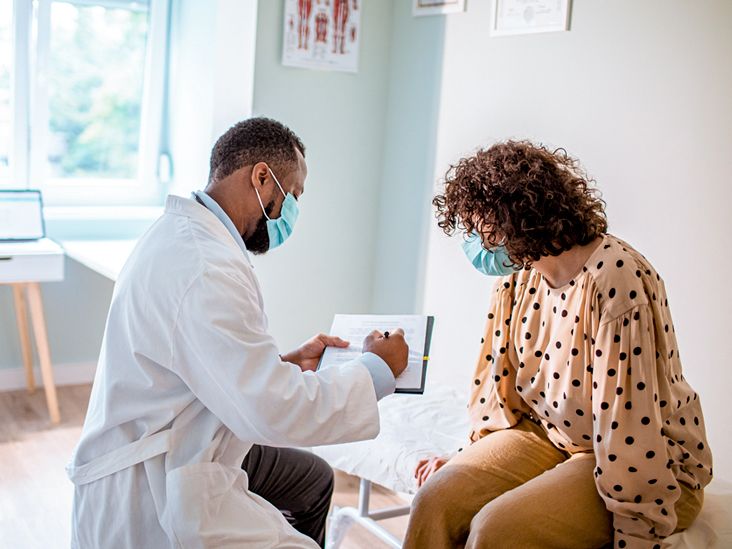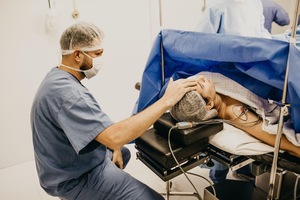Introduction
In an increasingly diverse world, cultural competency in healthcare is not just a luxury; it's a necessity. As healthcare providers interact with patients from various backgrounds, the need for understanding and respecting cultural differences becomes paramount. The impact of cultural competency on patient safety cannot be overstated. This article explores how cultural competency can significantly affect not only the quality of care but also patient outcomes.

How Cultural Competency Can Impact Patient Safety
Cultural competence refers to the ability of healthcare providers to understand, appreciate, and interact with individuals from cultures or belief systems different from their own. It involves recognizing the importance of culture in shaping health behaviors and outcomes. When healthcare professionals are culturally competent, they are better equipped to provide effective care, leading to enhanced patient safety.
Understanding Patient Backgrounds
One fundamental aspect of cultural competency is understanding the background of patients. Each patient's cultural narrative shapes their views on health and illness. For example:
- Language Barriers: Patients who do not speak English fluently may struggle to communicate symptoms or concerns effectively. Health Beliefs: Different cultures have unique beliefs about health practices, treatments, and medications. Recognizing these can prevent misunderstandings.
By taking the time to learn about a patient's background, healthcare providers can foster trust and improve communication, which directly impacts patient safety.
The Role of Effective Communication
Effective communication is critical in any healthcare setting. Culturally competent care emphasizes:
Listening Skills: Healthcare providers should actively listen to patients to understand their needs fully. Use of Interpreters: Where necessary, utilizing professional medical interpreters can bridge language gaps. Non-Verbal Communication: Being aware of non-verbal cues that vary across cultures helps in creating a comforting environment.When communication barriers are minimized, patients feel more comfortable voicing concerns or asking questions, which can lead to improved clinical outcomes.

Building Trust with Patients
Trust is the cornerstone of any therapeutic relationship. Culturally competent care fosters trust by:
- Acknowledging differences without judgment. Respecting individual preferences related to treatment. Creating an inclusive environment where all patients feel valued.
Patients who trust their providers are more likely to follow treatment plans and seek help when needed—both critical factors for ensuring safety in medical settings.
Reducing Medical Errors Through Cultural Awareness
Cultural misunderstandings can lead to medical errors that jeopardize patient safety. Examples include:

- Misinterpretation of symptoms due to language barriers. Incorrect assumptions about a patient's lifestyle choices based on stereotypes.
By being culturally aware and sensitive, healthcare providers can significantly reduce the risk of such errors.
Training Healthcare Providers in Cultural Competency
Training programs focused on enhancing cultural competency can equip healthcare professionals with essential skills:
Workshops: Interactive workshops can offer insights into various cultures’ health-related beliefs. Role-Playing Scenarios: Engaging in role-playing exercises helps providers practice responding effectively in diverse situations.Such training not only enhances knowledge but also reinforces empathy among caregivers—ultimately improving patient safety outcomes.
The Link Between Culture and Health Outcomes
Cultural Influences on Health Behaviors
Culture influences how individuals perceive health risks and what preventive measures they take. For instance:
- Some cultures may emphasize herbal remedies over conventional medicine. Others might prioritize family involvement in decision-making regarding healthcare.
Understanding these inclinations allows healthcare practitioners to tailor interventions that align better with patients' beliefs—thereby enhancing compliance with treatment protocols and minimizing risks associated with misunderstanding treatment options.
The Importance of Community Engagement
Engaging communities is another powerful strategy for improving cultural competency within healthcare systems:
Community Outreach Programs: These initiatives educate both patients and providers about specific health issues prevalent within certain communities. Partnerships with Local Organizations: Collaborating with community organizations ensures that health services meet local needs while respecting cultural nuances.This two-way street enhances mutual respect between communities and healthcare systems—leading to safer health environments overall.
Legal Implications of Cultural Competency in Healthcare
Understanding Medical Malpractice Risks
When considering how cultural competency can impact patient safety, it's crucial also to address legal aspects such as medical malpractice risks involving physicians who fail to provide culturally competent care:
Courts increasingly recognize failures in communication as grounds for lawsuits. Lawyers that sue doctors often leverage evidence showing inadequate attention was paid toward understanding patients' cultural contexts during treatment decisions.Given this potential legal exposure, promoting cultural awareness becomes not only an ethical obligation but also a strategic business decision for medical practitioners looking to safeguard against malpractice claims.
Best Practices for Minimizing Legal Exposure
To minimize legal exposure related to cultural incompetence:
- Implement regular training sessions for staff on cultural sensitivity. Document interactions thoroughly—especially where language barriers exist—to demonstrate attempts at effective communication.
By adopting these best practices, healthcare facilities reinforce their commitment toward providing safe and equitable care while reducing liability risks associated with medical malpractice.
Creating Inclusive Healthcare Environments
Diversity Training Initiatives
Healthcare institutions should implement diversity training initiatives aimed at fostering inclusive environments that promote understanding among staff members regarding various cultures’ values concerning health:
Workshops focusing on unconscious bias help identify prejudices affecting interactions with diverse populations. Encouraging open dialogues about race and ethnicity creates spaces where employees feel safe addressing sensitive topics—ultimately improving team dynamics essential for delivering high-quality patient care.These efforts cultivate a culture within organizations dedicated not only towards operational excellence but also compassionate service delivery tailored uniquely towards each patient’s needs—thereby bolstering overall safety levels within clinical settings!
Patient-Centered Care Models
Adopting patient-centered care models aligns closely with principles underpinning effective multicultural engagements across all facets involved throughout a typical hospital stay experience!
Involving families in decision-making processes reflects sensitivity towards culturally adhered norms surrounding community involvement regarding significant life events like illness management!These models advocate actively engaging patients throughout every step taken during their treatment journey!
FAQs About Cultural Competency's Impact on Patient Safety
1. What is cultural competency?
Cultural competency refers to the ability of healthcare providers to effectively understand and respond respectfully to the diverse backgrounds of their patients—including language proficiency and belief systems surrounding health practices.
2. How does culture affect patient safety?
Culture impacts how individuals perceive illness symptoms, communicate those concerns effectively within clinical settings—and ultimately navigate through prescribed treatments—all contributing significantly towards enhancing or undermining overall safety levels experienced throughout care journeys!
3. What role does communication play?
Effective communication enables clearer exchanges between caregivers & clients—minimizing misunderstandings while empowering patients engaged fully throughout every stage involved during respective recovery processes—which directly correlates positively toward improved clinical outcomes!
4. Why is training important for healthcare professionals?
Training equips professionals with tools necessary for navigating complex interactions involving diverse populations! These initiatives promote empathy while reinforcing awareness surrounding prevalent biases deemed detrimental towards establishing rapport vital towards achieving conducive healing environments!
5. Can lack of cultural understanding lead to legal issues?
Yes! Inadequate attention paid towards accommodating varying perspectives surrounding treatments could expose practitioners vulnerable towards potential lawsuits stemming from perceived negligence concerning fulfilling duty-of-care obligations owed unto respective clientele!
6: How do we measure improvements resulting from enhanced competencies?
Improvements resulting from increased competencies manifest through tangible metrics including reduced rates associated specifically linked toward adverse incidents occurring due solely inadequately managed cross-cultural exchanges marked previously noted lapses within communication strategies employed during routine assessment practices conducted regularly within respective facilities utilized across various community settings observed today!
Conclusion
The impact of cultural competency on patient safety is profound and multifaceted—from enhancing communication practices through building trust between caregivers & clients alike down pathways ultimately leading towards fostering inclusive environments welcoming engagement amongst diverse groups concerned regarding personal wellbeing!
Healthcare organizations stand poised upon brink transformative change capable revolutionizing standards reflected across entire industry operations committed entirely delivering equitable access alongside comprehensive services provided uniquely tailored whilst remaining sensitive toward specific traditions upheld proudly amongst various ethnicities represented consistently throughout society today!
As we progress into an ever-diversifying landscape demanding heightened awareness coupled alongside unwavering dedication directed solely around meeting distinct needs embodied collectively amongst communities served daily—the call remains clear! Embrace cultural competence—it’s imperative not only safeguarding lives but ensuring future generations thrive amidst opportunities afforded collaboratively established partnerships prioritizing mutual respect grounded firmly rooted established upon foundation supporting vibrant healthy societies flourishing well beyond expectations envisioned traditionally far too often overlooked historically long overdue finally recognized comprehensively unfolding beautifully unfolding before our very eyes now forever changing course paving way brighter tomorrow awaits us all ahead together stronger united purposefully pursuing excellence relentlessly tirelessly committed genuinely caring sincerely wholeheartedly devoted wholeheartedly serving one another always striving onward upward inevitably evolving continually progressing forward diligently onward pressing ahead determinedly seeking improvement tirelessly devoted nurturing relationships founded deeply cherished bonds built upon love compassion respect shared universally connecting humanity bridging divides once thought insurmountable together standing united triumphantly forging paths leading brighter horizons illuminating futures filled hope promise possibilities boundless awaiting discovery unveiling treasures hidden deep beneath surface waiting patiently reveal themselves whenever ready seize moment embrace opportunity destiny awaits let us rise!